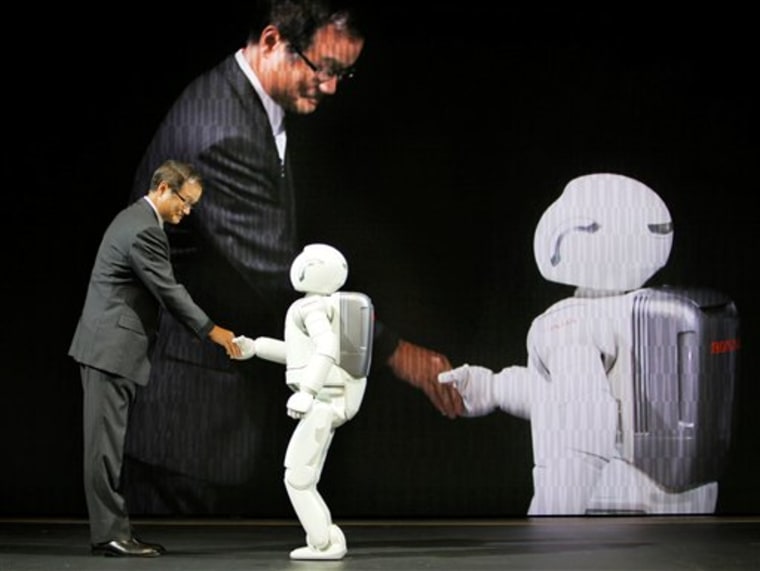This year's Tokyo Motor Show is a lonesome affair for the Japanese, with foreign automakers largely no-shows for the first time in decades as they cut costs amid the downturn and focus on fast-growing markets like China.
The Japanese have always had a major presence at the Tokyo show, now being staged for the 41st time. But never before have this nation's top five automakers and their affiliates so dominated the biannual event.
Conspicuously absent from the Tokyo show were German automakers Volkswagen AG and BMW AG as well as U.S. manufacturers General Motors Co. and Ford Motor Co.
The lethargy of the Japanese market, which fell to its lowest level in more than three decades last year at 3.21 million vehicles, is another reason overseas automakers and suppliers have stayed away.
Instead, they have focused on events in emerging markets, such as the Shanghai Auto Show held in April. China's vehicle sales hit 9.66 million units in the first nine months of this year, up 34 percent, as the country widened its lead over the U.S. as the world's top auto market.
South Korea's Hyundai Motor Co. was on the preliminary list of participants but canceled just three weeks ago, citing "the global economic downturn, which has forced a more careful allocation of resources."
The only non-Japanese taking part are Group Lotus, the British maker of sports cars, and Alpina Burkard Bovensiepen of Germany.
Even the Japanese were pinching pennies, showing just a handful of world premieres.
The cars on display Wednesday — electric vehicles, plug-ins, futuristic hybrids — were all designed to drive home the message that the Japanese are determined to take a decisive lead in green auto technology.
"The race to zero-emission has begun," Nissan Motor Co. Chief Executive Carlos Ghosn said, driving on stage in a bullet-shaped electric vehicle.
Inspired by a motorcycle, the experimental Land Glider has wheels that tilt into corners, swaying from side to side.
Reporters got a preview of presentations by Nissan and other automakers ahead of the event's opening Friday. The show, which opens to the public over the weekend, runs through Nov. 4.
Toyota Motor Corp., the world's No. 1 automaker, is showing a plug-in Prius, which travels longer as a pure electric car.
A regular Prius hybrid delivers better mileage by switching between a gasoline engine and an electric motor. Toyota leads in hybrids, selling a cumulative 1.4 million Prius cars since its 1997 debut.
Chief Executive Akio Toyoda showed off an in-the-works two-seater Lexus luxury hybrid called LF-Ch.
Bullish about EVs
To stress that Toyota was also bullish about electric vehicles, he showed the short-range commuter FT-EV II.
"Some say that hybrid vehicles and electric vehicles are completely different," he told reporters. "But Toyota hybrids can also run as electric vehicles. They are already half electric-vehicles."
Takeshi Uchiyamada, executive vice president at Toyota, said 30 percent of Toyota's new product sales may be hybrids, not including plug-in hybrids, by 2020.
Such projections were difficult because of unknown factors such as oil prices and government ecological policies, he told reporters on the sidelines of the show.
Mamoru Katou, auto analyst with Tokai Tokyo Research, said Japanese automakers were vying to lead in green technology, even if some of the models were too experimental to be sold any time soon.
"Ecology is what you push these days," he said in a telephone interview. "They are all trying to show where we are headed in the future."
Honda Chief Executive Takanobu Ito stressed the show is an opportunity to demonstrate the strengths of the Japanese in environmental technology, such as Honda's Clarity fuel-cell vehicle, which runs on superclean energy produced when hydrogen combines with oxygen in the air to produce water.
In addition to the Insight hybrid, which went on sale earlier this year, Honda is showing a near-commercial version of another hybrid-only model, the sporty CR-Z. It is going on sale in February in Japan, and later in the U.S. and Europe.
But when asked about the absence of rivals from abroad, Ito could only say, "It feels lonely."
